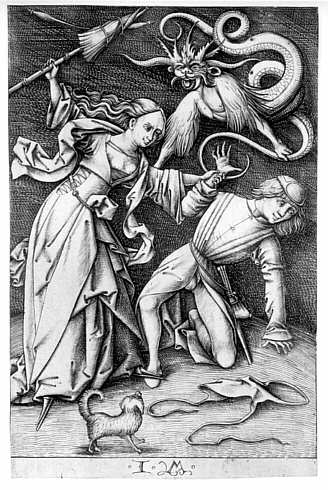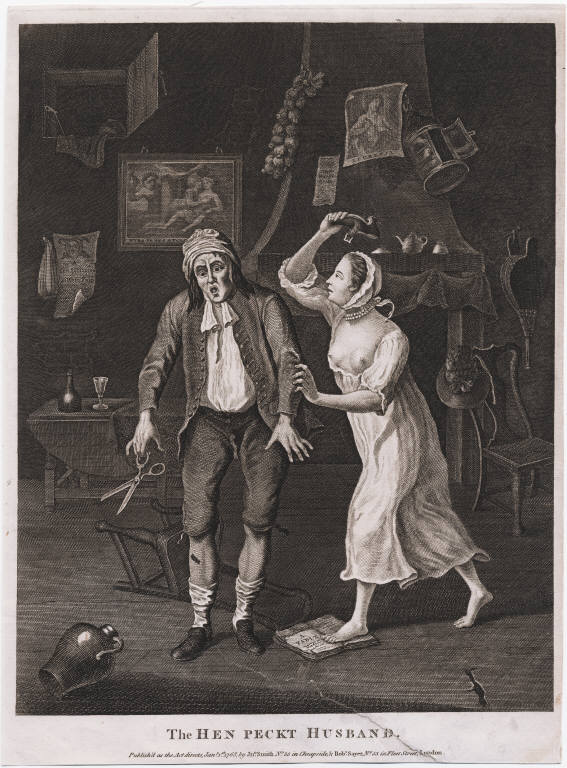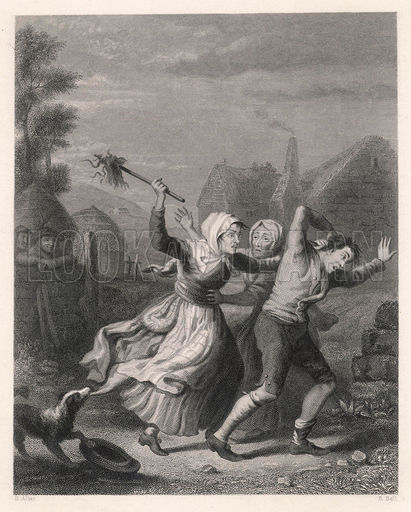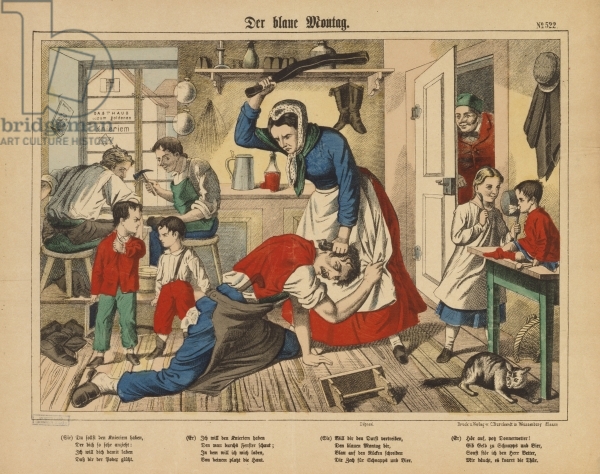See Also:
– Fire-poker princesses: an evidence-based snapshot of female violence in nineteenth-century England
– Riding the Donkey Backwards: Men as the Unacceptable Victims of Marital Violence
– “Stang riding” as punishment for male victims of intimate partner violence
– The Henpecked Club: A 200 Year Fellowship of Abused Husbands
“Shrew” is an outdated term referring to difficult and/or violent women who are abusive to children and husband, a person we would today refer to as a domestic violence perpetrator. Below are a few examples found in old European literature.
ITEM 1 (1665):
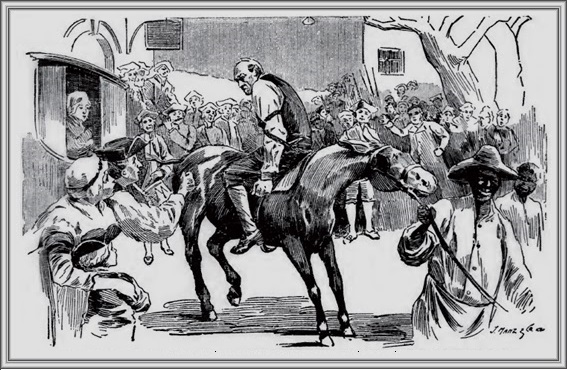 In post-Medieval France and England, society ridiculed and humiliated husbands thought to be battered and/or dominated by their wives. In France, for instance, a battered husband was made to wear an outlandish outfit and was trotted around town riding a donkey backwards while holding its tail, such as we read in Samuel Pepys diary of 1665 which recounts, “…the stairs full of people, there being a great riding there to-day for a man, the constable of the town, whose wife beat him.” [1] In England, “abused” husbands were strapped to a cart and paraded around town, all the while subjected to the people’s derision and contempt. Such treatment for battered husbands was in apparent support of the offending wife’s belief that her husband was “weak” and needed to be corrected [2]
In post-Medieval France and England, society ridiculed and humiliated husbands thought to be battered and/or dominated by their wives. In France, for instance, a battered husband was made to wear an outlandish outfit and was trotted around town riding a donkey backwards while holding its tail, such as we read in Samuel Pepys diary of 1665 which recounts, “…the stairs full of people, there being a great riding there to-day for a man, the constable of the town, whose wife beat him.” [1] In England, “abused” husbands were strapped to a cart and paraded around town, all the while subjected to the people’s derision and contempt. Such treatment for battered husbands was in apparent support of the offending wife’s belief that her husband was “weak” and needed to be corrected [2]
ITEM 2 (1667):
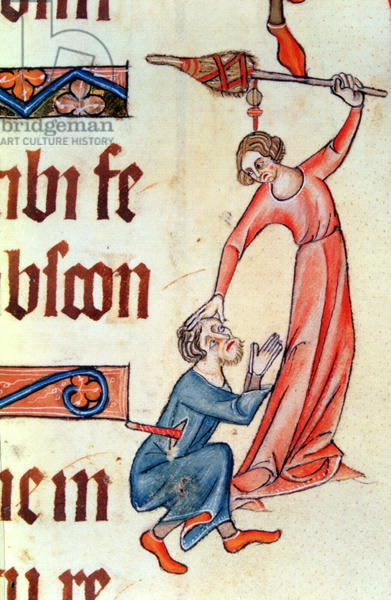
Here’s a quaint poem from 1667:
The court, as once at war, now fond of peace,
All to new sports their Wanton fears release,
From Greenwitch (where intelligence they hold),
Comes a new pastime, martial and old.
A Punishment invented first to awe
Masculine Wives transgressing Nature’s Law ;
Where when the brawny Female disobeys,
And beats the Husband, till for Peace he prays,
No concern’d Jury damage for him finds,
Nor partial Justice her behaviour binds.
“By Petticoat Government, I mean when bad women usurp all authority over their husbands, as is the case with shrews, and such as command, and (perhaps) Beat their husbands, for which there is often a riding, as I shall shew in a variety of instances.” [3]
“Bromia, a devilish Shrew of her tongue, and a Vixon of her hands that leads me to a miserable Life and keeps me to hard Duty; and beats me every morning when I have risen from her side” [4]
“His wife, who is a shrew, has beat him, and shut him up in a cellar. She is a worse devil than Pilate’s wife was.” [5]
“The gaoler was willing enough to comply with this order, suffering none to come to him, but such as abused him ; and his wife, who was a wicked shrew, did not only set her man to beat him, but several times herself laid violent hands upon him” [6]
More on the history of Intimate Partner Violence by Girl Writes What:
[1] Samuel Pepys, Mynors Bright, The Diary of Samuel Pepys
[2] Malcolm J. George, Riding the Donkey Backwards: Men as the Unacceptable Victims of Marital Violence. See also;
Suzanne K. Steinmetz, The Battered Husband Syndrome
[3] http://books.google.com.au/books?id=7UcJSwAACAAJ&dq=%22Petticoat+government.+In+a+letter+to+the+court+lords.%22&hl=en&sa=X&ei=-f46UoxGgu2QBdO6gLAD&redir_esc=y
[4] The works of John Dryden, 1717
[5] Strahan,A New and general biographical dictionary
[6] William Sewel, The History of the Rise, Increase, and Progress of the Christian People Called Quakers
